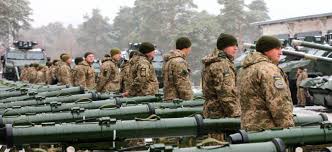Legal aspects of military conflict and international law
Military conflict is an armed confrontation between states or other organized groups that is governed by both national and international law.
International law plays a key role in regulating the conduct of hostilities, the protection of human rights and humanitarian assistance.
In this article we will consider the main legal aspects of military conflicts and the principles of international law governing these issues. You may be interested in the following articles: lawyer consultation, lawyer consultation, document analysis, legal analysis of the situation, written consultation, lawyer document review, lawyers documents, lawyer help online, lawyer online, legal opinion, legal opinion of the lawyer, lawyer online.
Basic Principles of International Law
UN Charter
The Charter of the United Nations (UN) is the primary document that defines the principles of international law, particularly with respect to military conflicts. Key provisions include:
Prohibition of Aggression: Under the UN Charter, the use of force against the territorial integrity or political independence of any state is prohibited (Article 2(4)).
Right of self-defense : Article 51 of the UN Charter recognizes the right of states to individual or collective self-defense in the event of an armed attack.
Role of the Security Council : The UN Security Council has the authority to decide on the use of force to maintain international peace and security (Chapter VII of the Charter).
Geneva Conventions
The Geneva Conventions are the main international treaties governing the humanitarian aspects of warfare. Major provisions include:
Protection of civilians: The Geneva Conventions establish rules for the protection of civilians not engaged in hostilities.
Protection of the wounded and prisoners of war: The Conventions define rights and obligations with respect to wounded, sick soldiers and prisoners of war.
International Committee of the Red Cross (ICRC): The ICRC plays a key role in monitoring compliance with the Geneva Conventions and providing humanitarian assistance.
The Hague Conventions
The Hague Conventions regulate methods and means of warfare. Key provisions include:
Prohibition of Certain Weapons: The Hague Conventions prohibit the use of certain weapons that cause excessive suffering or have indiscriminate effects.
Rules of Engagement: Establishes principles of proportionality and distinction requiring minimization of harm to civilians and facilities.
Types of military conflicts
International armed conflicts
International armed conflicts are conflicts between states. They are governed by both the Geneva and Hague Conventions, as well as other international treaties and customary international law.
Non-international armed conflicts
Non-international armed conflicts are conflicts between a State and organized armed groups or between such groups within a State. They are governed by Article 3 common to the Geneva Conventions and Additional Protocol II.
Responsibility for violations of international law
International Crimes
The main types of international crimes that can be committed during military conflicts include:
War Crimes: Serious violations of the laws and customs of war, such as murder, torture, hostage-taking.
Crimes against humanity: Widespread or systematic attacks against the civilian population of a country.





























